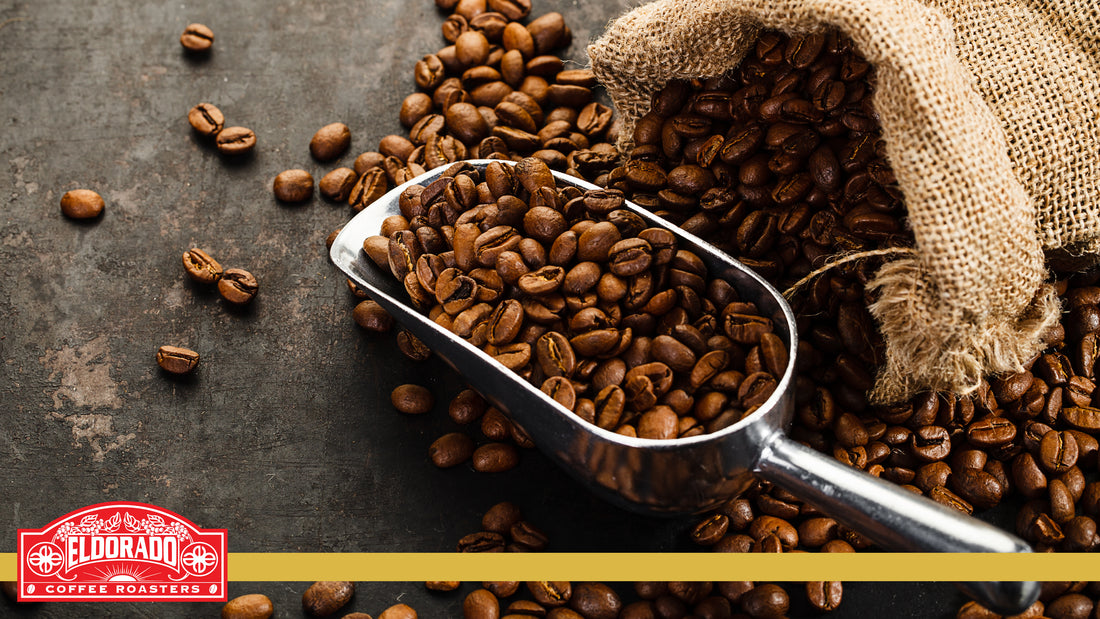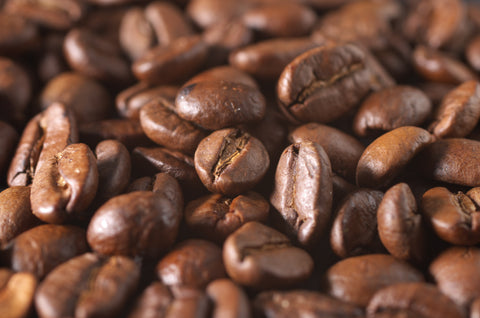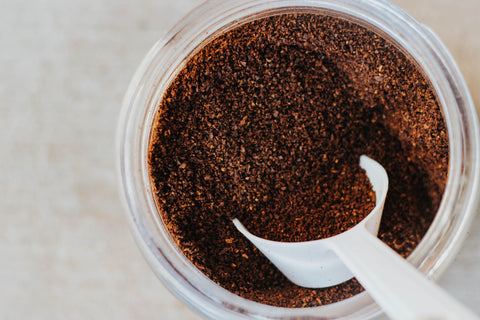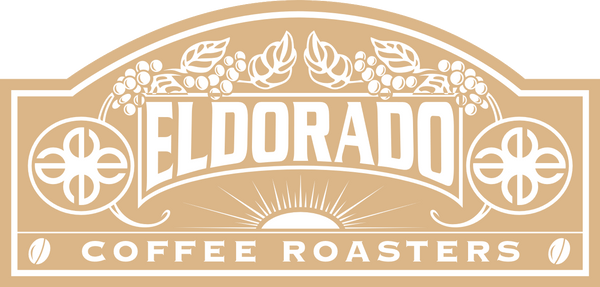
Ground vs Whole Bean Coffee: What’s The Difference?
Share
You can buy coffee in one of two ways: whole beans or pre-ground. But what’s the difference—and which is better? Does whole bean taste better than ground? Is ground coffee less expensive? Does it matter what you pick?
Let’s dive into the differences between ground coffee vs whole bean coffee so you can decide which type of Eldorado bag works best for you.
What is whole bean coffee?
When you buy whole bean coffee, you’re buying roasted coffee beans in full. They’re still in bean form. You can’t make coffee with the whole beans, though. After purchase, you need to grind up these beans at home in order to use them for the brewing process.
What is ground coffee and instant coffee?
Ground coffee is more popular than whole bean coffee because of its convenience and ease. Ground coffee is essentially pre-ground by the roasters, so you don’t have to grind it yourself at home. You just have to throw it in your brewer in the morning.

What are the benefits (and drawbacks) of whole bean coffee?
Why we love whole bean coffee
Whole bean coffee is ground right before brewing, so it tends to taste fresher and more flavorful than pre-ground.
The bean also retains more of the flavor and fragrance before grinding, so it will stay fresh in your pantry for longer. (Check out this article to find out how long it takes for coffee to expire as whole beans or grounds.)
If you’re a coffee connoisseur, whole bean coffee is usually the best choice to ensure all of the flavors, aromas, and notes of your coffee are freshly released for your cup.
Some drawbacks to whole bean coffee
You need to grind the whole beans before you brew them. This means you need to purchase a quality at-home grinder, and you need to take some extra time in the morning to grind your beans. (The grinding process usually takes no more than 30-60 seconds, though. Learn how to grind your beans at home here.) Plus, you’ll need to clean the grinder out every once in awhile to keep it working efficiently.
You also need to experiment with different grind sizes. Your grinder will likely have different settings to produce different sizes and coarseness of grounds. This means you may need to play around with your grinder and brewing method to see which setting and coarseness works best to create your perfect cup.
Whole bean pros:
- Tastes fresher
- More fragrant
- Has longer shelf life
Whole bean cons:
- Time intensive
- Need additional equipment (like a burr grinder)
- Uncertainty of grind size

What are the benefits (and drawbacks) of buying ground coffee?
Why we love ground coffee
One of the best parts about pre-ground coffee is that it takes the guesswork out of the grinding process. Most companies pre-grind the beans to the ideal size for a drip brewer, like a pour over or standard coffeemaker. You usually don’t have to run experiments to see which size grinds will work best for your coffee maker.
Plus, you save time by not having to grind the beans yourself.
Some drawbacks
However, pre-ground coffee is usually too coarse for other brewing methods. A percolator or espresso machine, for example, requires a finer grind that you usually won’t find with pre-ground coffee beans (unless the bag says those beans are specifically ground for that machine).
For example, Eldorado sells ground coffee that’s made for espresso. So we grind these beans to a fine powder that you can use for espresso or aeropress machines. Check out our ground espresso can here.
Unfortunately, ground coffee expires faster than whole bean coffee. It’s highly susceptible to contamination because the oils released from ground beans are very delicate. The more the ground coffee is exposed to the environment, the faster it will go stale. You can learn how to keep your coffee fresh here.
Ground coffee pros:
- Coarse grind for works well for traditional coffee makers
- Saves time
- Convenient
Ground coffee cons:
- Too coarse for certain brewing methods
- Goes stale faster
- Not as flavorful or fresh
Does the brewing process matter?
How you brew your coffee may also determine if you prefer to purchase whole bean versus pre-ground coffee. The time that the water is in contact with the coffee grinds will determine how strong and tasty your brew is.
The finer the grind, the more surface area of coffee is exposed to water. This means finer grinds need less time to extract the coffee.
The grinds you may want for each brewing process:
- Extra fine: Turkish coffee
- Fine: espresso and aeropress
- Medium fine: Moka pot, pour over cone, drip with cone filter, vacuum pot
- Medium: pour over, drip coffeemaker with flat bottom filter
- Medium coarse: café solo brewer, Chemex brewer
- Coarse: French press, percolator, cupping
- Extra coarse: cold brew coffee
You have more control over the grind size if you buy whole beans and grind them yourself. Most pre-ground beans are a medium grind.
What’s the best way to brew coffee? Learn how to make barista style coffee at home or check out this opinion piece on the Huffington Post to get more ideas.
How much of each do you need?
What’s the ground coffee vs whole bean measurement?
In general, you want to use weight as opposed to volume for measuring your coffee. Bean sizes vary a lot, and volume doesn’t account for source, grind coarseness, or roast level. Instead, you’ll generally want to consider how much weight you need—as opposed to the number of scoops.
Overall, though, there’s not a huge difference between the weight of whole bean coffee versus ground coffee. A good rule of thumb for either is 1:15 coffee to water. For every 1 gram of coffee, you want about 15 grams of water. In general, that means about 3 tablespoons of coffee for every 1 cup of water.
Play around with measurements to see what works best for your taste buds!
Is it cheaper to buy ground coffee or beans?
Pre-ground coffee tends to be cheaper than whole bean coffee for three reasons.
First, if you choose the whole bean route, you’ll need to also purchase a grinder, which can cost anywhere from $10 to $1000 as an upfront cost. Check out some of the best burr grinders for 2019 here.
Second, it costs more for companies to ship whole beans than ground beans. That’s partially because it’s harder to keep whole beans free from contamination while shipping.
Third, commercial pre-ground coffee is often not as high quality as whole bean. Commercial companies throw in different types of beans, sourced from different places, into one batch and grind it up. Whole beans, on the other hand, almost always have a single source or they’re a more purposeful coffee blend. This makes them pricier (and in many cases, higher quality).
At Eldorado, though, we always strive to provide the best quality coffee at the best possible price. So whether you’re purchasing ground or whole bean coffee, we only sell you the best beans and blends from superior farms around the globe.
See our Eldorado promise here.
The answer?
Purchasing and grinding whole beans will usually give you a fresher, more flavorful cup of coffee. You also can try out and play around with different brewing methods to see which you prefer the most. Whole beans give you more control and taste.
Pre-ground coffee saves time and doesn’t require as much skill. They may also be cheaper, more accessible, and more convenient.
Ultimately, it comes down to your preference. We’ve found that most Eldorado customers prefer whole bean coffee. They say that the grinding process isn’t that time-intensive, and it’s fun to experiment with different coarseness and brews to see how it changes the flavor!
Eldorado customers tend to be high-end coffee connoisseurs in search for the best cup of java. That’s why we offer a lot of whole bean options as well as superior quality pre-ground coffee.
Start shopping some of our most popular coffees:
- Whole bean: Colombian Popayan
- Whole bean: Havanero Espresso
- Ground: Café Eldorado Espresso
